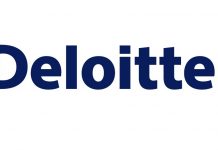Recently, the World Economic Forum predicted blockchain technology will “fundamentally alter the way financial institutions do business around the world” and will soon become “the beating heart” of the finance industry. Monica Eaton-Cardone, an IT executive with payment industry and financial technology expertise, agrees that blockchain will renovate the global financial system but emphasized that it can also offer substantial advantages for merchants and consumers as well.
Blockchain has been embraced for its ability to cut billions of dollars in hidden costs in the financial system by eliminating inefficiencies and the need for trade insurance. Improved speed, ease of use and cost efficiency are just some of the benefits companies are leveraging in a bid to disrupt the global payments industry, revenues of which are expected to reach $2.3 trillion by 2019.
Eaton-Cardone, who serves as Chief Information Officer of Global Risk Technologies and Chief Operating Officer of Chargebacks911, remarked: “Though bitcoin may have limited penetration in today’s eCommerce system, blockchain is gaining attention and traction on a global scale. It not only has the potential to reduce banks’ operating costs, but many believe it can make financial services more secure and accessible. When fully implemented, it will offer numerous benefits for banks, merchants and consumers alike. Reduced costs and increased competition in the financial services industry should ultimately drive down the fees consumers are charged for financial transactions such as international payments and stock trading. Likewise, fast and inexpensive international fund transfers will make it easier for eCommerce merchants to expand their business globally.”
Anther aspect which was pointed out were that many merchants are waiting to see if blockchain-enabled transactions will offer the same benefits as bitcoin. With instant verification of funds and immediate transfer and settlement, blockchain technology can help merchants minimize false declines and fraudulent transactions. Furthermore, bitcoin transactions are non-reversible and therefore not subject to chargebacks, eliminating the risk of friendly fraud. However, it remains to be seen whether new blockchain services developed by banks will allow chargebacks.
However, Eaton-Cardone cautioned that there are still a number of hurdles to overcome, such as regulatory uncertainty, the need for standardization and a legal framework, and security concerns following two high-profile hacks this summer that nabbed roughly $120 million in assets.





